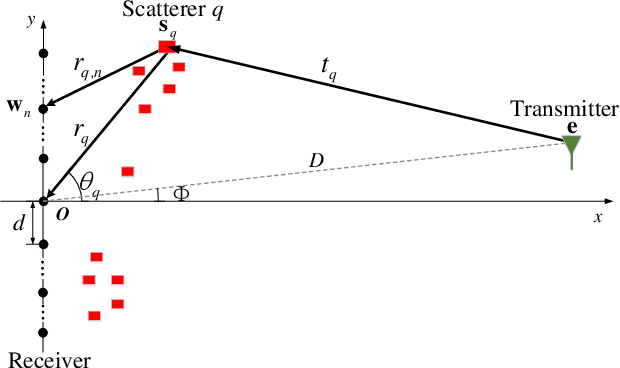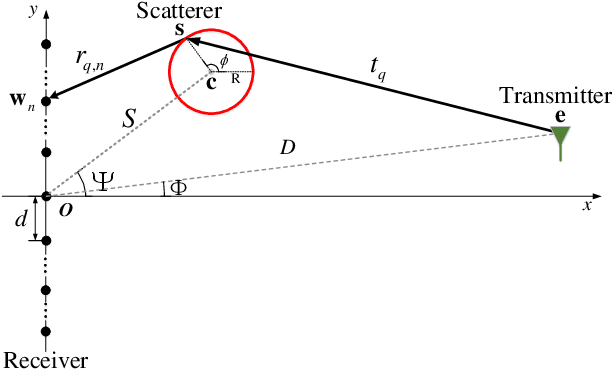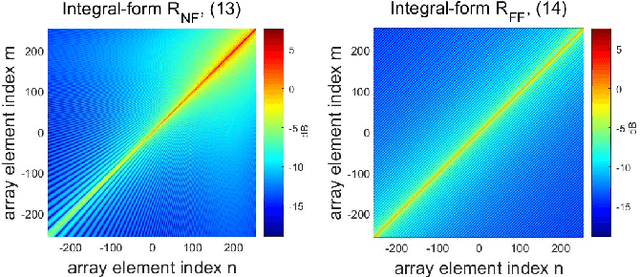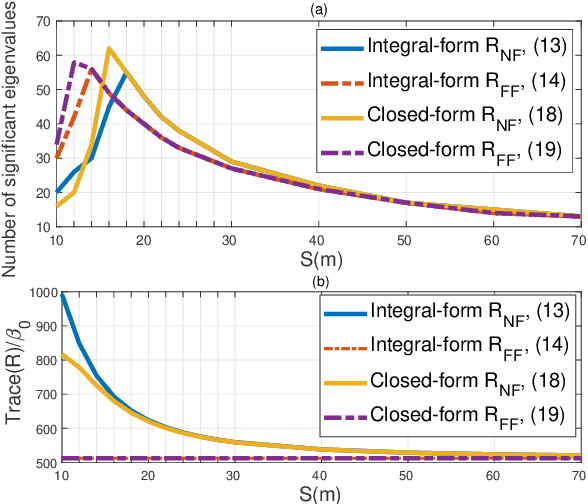Near-Field Spatial Correlation for Extremely Large-Scale Array Communications
Paper and Code
Jan 09, 2022



Extremely large-scale array (XL-array) communications correspond to systems whose antenna sizes are so large that the scatterers and/or users may no longer be located in the far-field region. By discarding the conventional far-field uniform plane wave (UPW) assumption, this letter studies the near-field spatial correlation of XL-array communications, by taking into account the more generic non-uniform spherical wave (NUSW) characteristics. It is revealed that different from the far-field channel spatial correlation which only depends on the power angular spectrum (PAS), the near-field spatial correlation depends on the scattered power distribution not just characterized by their arriving angles, but also by the scatterers' distances, which is termed as power location spectrum (PLS). A novel integral expression is derived for the near-field spatial correlation in terms of the scatterers' location distribution, which includes the far-field spatial correlation as a special case. The result shows that different from the far-field case, the near-field spatial correlation no longer exhibits spatial stationarity in general, since the correlation coefficient for each pair of antennas depends on their specific positions, rather than their relative distance only. To gain further insights, we propose a generalized one-ring model for scatterer distribution, by allowing the ring center to be flexibly located rather than coinciding with the array center as in the conventional one-ring model. Numerical results are provided to show the necessity of the near-field spatial correlation modelling for XL-array communications.
 Add to Chrome
Add to Chrome Add to Firefox
Add to Firefox Add to Edge
Add to Edge